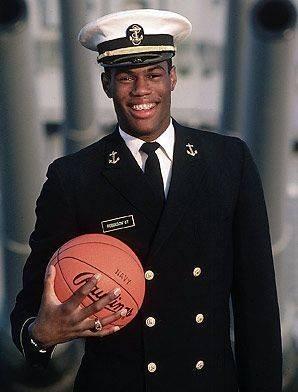
As early as the 16th century, Spanish mercenaries regarded ball sports as a necessary fitness condition, the U.S. military has a football plot and NBA celebrities (the famous center Robinson really served in the U.S. Navy), and our army also has a deep relationship with basketball and baseball. Golf also has a fate with some armies, that is, the character of the military players who play ball is too far away.
Golf has never been the mainstream sport in the military, and the soldiers who are famous for playing golf are basically either rich or expensive. Japan's most famous golf general is Hatohiko Asakamiya. Hatohiko Asakamiya was the uncle of Emperor Hirohito and a famous "troublemaker" among the Japanese imperial family. In 1922, Asakamiya went to France to study, and in 1923, he was born in a car accident that made the entire Japanese imperial family angry, and his car accident caused the death of Hisobu King Naritahisa of Kita-Shirakawa Palace, and the prince in the house of his eldest sister-in-law was seriously injured, and he himself suffered a back injury and a leg crippled. During asaka's injury, he developed a hobby of golfing.
By 1933, when Prince Fumimiya Yoshinai, the wife of Hatohiko Asakamiya, died of illness, he was even more unpopular among the imperial family, and he only worked for three years and ten months in the position of military commander, so he was even more liberated. After Matsui Ishigen left Nanjing due to illness in December 1937, it was this golfing prince who ordered "Kill all the captives!" Then he played golf while sitting idly by while watching his subordinates slaughter 300,000 Nanjing people. Matsui Ishigen became his back-and-forth man, after all, this was still the uncle of Emperor Hirohito, with two older brothers as generals and an uncle as a marshal. After the war, Asakamiya was not punished, but became the president of the Japan Golf Association, and lived until the age of 94 before his death.
There are also "famous generals" in the national army who are good at golfing, that is, Zhou Zhirou, commander of the Air Force. Zhou Zhirou's air force operations have two characteristics, one is that the results of the battle are particularly large, and the other is that they are particularly good at being cruel to ordinary people and being merciful to the people of foreign enemies. During the War of Resistance Against Japanese Aggression, according to his statistics on the results of the war, the results of the air combat of the Nationalist army were: "4,072 combats, 18,509 aircraft on duty, 715 tons of bombs dropped (that is, the amount of bombs dropped by the US military in a day of thousands of aircraft bombing), 518 Japanese aircraft were shot down, 110 were injured, 627 Japanese aircraft were blown up, 120 were blown up, 282 ships were destroyed, and 8,456 tanks and military vehicles were destroyed." The problem is that the Japanese army produced a total of 5450 tanks during the entire Period of World War II. The number of tanks invested in the Chinese battlefield is only more than a thousand, and even if only one-tenth of the results of the Nationalist Air Force are tanks, it can seriously damage the vitality of the invading army. By the time of the Liberation War, General Zhou's cowhide was blown even more, and the results of the Nationalist Air Force became the annihilation of 2,282,578 enemy personnel, and 270,000 people were killed in the Battle of Huaihai alone.
Admiral Zhou's victory is large, but the bombing of his own people is by no means soft. From October 1949 to February 1950, General Zhou commanded the Kuomintang Air Force to conduct more than 20 air attacks on Shanghai, resulting in the destruction of more than 2,300 houses, the loss of more than 2,300 casualties, and the temporary paralysis of industrial production in Shanghai. Admiral Zhou bombed Shanghai powerfully, bombing Beijing actively (there were plans for the Bombing of the National Day Military Parade), but he bombed the Japanese very gently, and the Nationalist army bombed Tokyo with flyers instead of bombs. After retiring, Admiral Zhou was also the honorary president of the Taiwan Golf Association.
There are also strong golfers in the U.S. military, that is, five-star General Eisenhower. Eisenhower had a developed athletic nerve and was the star player of the football team as early as the Time at West Point. After becoming president, Eisenhower was passionate about golf and played the best among U.S. presidents, and was a member of augusta, the most famous golf club in the United States. Eisenhower had a good record and good athletic performance, which is a positive example of golf in the military.
The army is very normal to play ball, golf and ordinary officers, soldiers do not match (the history of the British aristocratic officers are also keen on golf, their record is also difficult to say), so there are these character, the record of the general spokesman with great differences in performance.